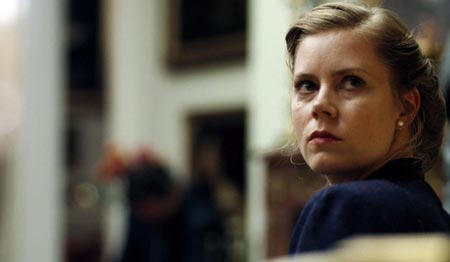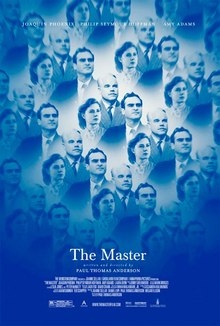If you’ve heard of The
Master at all by this point, you’ve probably heard the word ‘Oscar’ somewhere
in the same sentence. And for very good reason. However, before you lock it in
for every award in the office sweep, I’d remain a bit sceptical about its
chances in all but a few category.
A bit like Terrence Malick’s Tree of Life last year, Paul Thomas Anderson’s The Master is a bit of a challenge to the standard Hollywood feature. More of an exploration of a situation
than an actual story it comes across as series of impressions, any of which
might be valuable on their own but could be removed from the film without an
audience member feeling the lacuna.
It feels to me that there’s been growing mainstream interest
in these almost-European kinds of films over the last few years. Along with the
rather undeserving The Artist’s Oscar
sweep (despite being European, The Artist
has a Golden Age Hollywood storyline) last year, it signals perhaps a growing
frustration with the number of adaptations, remakes and sequels flooding the
market at the moment.
Although of note in a changing Hollywood
landscape, is the situation The Master
is specifically interested in, which would have been unthinkable in a
mainstream Hollywood movie even as recently as five years ago.
 |
| A rare moment of employment for Quell. What happens next moment though... |
To the extent we have a story at all, we follow Freddie
Quell (Joaquin Phoenix) a volatile, intermittently violent young man whose
trauma may stem from his experiences during the Second World War, or who may
have been profoundly damaged well before then. Living a shiftless existence in
the aftermath of the War, Quell’s life takes a dramatic turn when he wakes up
to find himself on a boat belonging to Lancaster Dodd (Phillip Seymour Hoffman),
a captivating presence who holds audiences in the palm of his hand and who his
close confidantes refer exclusively to as The Master.
 |
| Doesn't look like he'd hurt a Xenu, does he? |
The film’s narrative skips about a lot, pulling back to let
time pass and the word of The Cause grow only to zoom back in at almost random
moments to examine some new aspect of the dynamic between the two men and the
growing popularity of Dodd and the friction Quell causes between him and his
followers, particularly wife Peggy (Amy Adams).
 |
| Spoiler alert: the quasi-psychopathic Quell doesn't always have the smoothest journey |
 |
| I would definitely let Amy Adams fight my battles for me. |
Even Amy Adams, who I didn’t find as strong as some other reviewers brings a nice balance to the two as a woman who believes in Dodd even more than the Master himself. It wouldn’t surprise me if any or all of these didn’t pick up The Master’s few Oscars next year.
The Master is an
occasionally challenging, if ultimately worthwhile film, but I recommend you go
in with a clear mind and a wealth of patience.

No comments:
Post a Comment